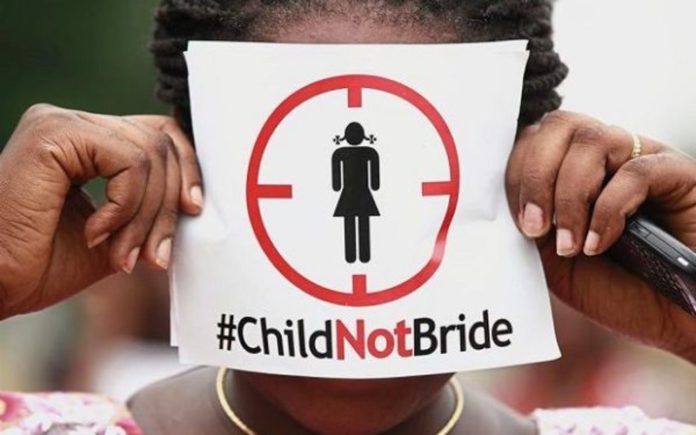
More than 1,000 children aged between 12 and 17 years have ever been in a marital union in the NKwanta North District in the Oti Region, a 2023 Ghana Statistical Service (GSS) report has revealed.
The report indicated that out of the 1,014 children who were involved in early marriage, 43 per cent were boys while 57 per cent were girls. The report further showed that the Nkwanta-North District had the highest incidence of child marriages, accounting for 27.3 per cent of the 3,728 cases across the eight municipal and district assemblies in the region while the Guan District had the lowest cases (79 cases, representing 2.1 per cent).
The Head of the Gender Department at the Oti Regional Coordinating Council (ORCC), Esther Hammond, explained to the Daily Graphic that while some of the child marriages involved adult men and under-aged girls, there were other cases where boys were either married to girls or in cohabitation.
She described the spate of early marriages in the Nkwanta North District and the region as worrying because it was detrimental to the overall development of the children. Ms Hammond said apart from poor health outcomes, early marriages increased risks of maternal and child mortality, entrenched gender inequality, disrupted education and deepened the vicious cycle of poverty.
“The situation is so serious because it has deprived girls of the right to education. Although the government has a policy on re-entry that allows girls to get back to school after childbirth, it affects them mentally, and some of them drop out of school again,” she said.
Context
Despite global and national efforts to eliminate child marriages and other harmful practices, it remains a daunting challenge, particularly impacting the lives of young girls. The United Nations International Children’s Emergency Fund (UNICEF) estimates that over 12 million girls worldwide are married before the age of 18.
In Ghana, recent data highlights the urgency of the issue, with the 2021 Population and Housing Census (PHC) revealing that 79,733 girls aged 12 to 17 years were married or living with a partner.
This situation is particularly prevalent in regions such as the North-East, Northern, Savannah, Upper West, Upper East and Oti, where factors such as adolescent pregnancy contribute significantly to the high incidence of child marriage.
To help reverse the increasing spate of child marriages in the Nkwanta North District, the Department of Gender at the ORCC, with funding support from the United Nations Population Fund (UNFPA), started stakeholder engagement.
A consultative meeting was held with community leaders on how to prevent child marriage and other harmful cultural practices in the district last week. The consultative meeting brought together 72 participants made up of chiefs, opinion leaders, heads men, religious leaders, assembly members, women groups, youth groups and other stakeholders.
The participants were drawn from six communities — Nabu, Abunyanya, Danladi, Kabonwule, Koni and Najingon. The forum was meant to raise awareness of the negative effects of child marriage, deepen the understanding of its local drivers, and equip community leaders with the knowledge and tools needed to advocate policy changes and local interventions.
Collective action
Ms Hammond said engagement with the stakeholders was meant to jointly develop tailored action plans to tackle child marriage in the district. “The consultative workshop, organised by the Department of Gender with support from the UNFPA, represents a vital step in our collective efforts to end child marriage.
We have the unique opportunity to empower community leaders to become agents of change, ensuring the protection and well-being of our children,” she said. She told the Daily Graphic that participants at the meeting had resolved to set up child protection committees and also work closely with school authorities at the basic level to address the triggers of child marriages.
Ms Hammond said she was optimistic that when the stakeholders worked together, they could create a future where every child was free from the threat of early marriage to pursue their dreams and aspirations.
Collaboration
The Regional Director of Social Welfare for the Oti Region, Innocent Komla Agbolosu, reminded the stakeholders about the rights of the child, especially the girl child.
He asked them to extend public education about children’s rights and responsibilities to all members of the community.
Mr Agbolosu also advised parents to provide the necessities of life for their children as expected by law so that they grow into responsible citizens.
Again, he urged parents to instil a sense of responsibility in their children even as everything possible was done to protect their rights.
ALSO READ:






